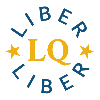Artificial Intelligence in PhD education: New perspectives for research libraries
DOI:
https://doi.org/10.53377/lq.18137Keywords:
research libraries, artificial intelligence (AI), ethics, academic integrity, PhD on TrackAbstract
Artificial intelligence (AI) will drastically influence and change the working methods of scholars and researchers. This paper presents findings from a broad, national survey and a workshop focusing on the challenges and opportunities the advancement of AI poses for PhD candidates, seen from the perspective of library staff working with research support in a number of research libraries in Norway. The paper looks into how research libraries could adapt to the development, addresses the roles of various stakeholders and proposes measures regarding the support of PhD candidates in the responsible use of AI-based tools. Based on insights from the survey and the workshop, the paper also shows what is lacking in the libraries' research support services concerning the understanding and utilisation of AI-based tools. The study reveals a degree of uncertainty among librarians about their role in the AI academic nexus. For the development of competences of teaching staff in academic libraries, the paper recommends to integrate AI-related topics into existing educational resources and to create arenas for sharing experiences and knowledge with relevant partners both within and outside the university.
Downloads
References
Braun, V., & Clarke, V. (2006). Using thematic analysis in psychology. Qualitative Research in Psychology, 3(2), 77–101. https://doi.org/10.1191/1478088706qp063oa
Braun, V., & Clarke, V. (2012). Thematic analysis. In APA handbook of research methods in psychology, Vol 2: Research designs: Quantitative, qualitative, neuropsychological, and biological (pp. 57–71). American Psychological Association. https://doi.org/10.1037/13620-004
Braun, V., Clarke, V., Hayfield, N., & Terry, G. (2018). Thematic analysis. In P. Liamputtong (Ed.), Handbook of research methods in health social sciences (pp. 1–18). Springer. https://doi.org/10.1007/978-981-10-2779-6
Eleni, N., & Fotini, P. (2018). Developing interdisciplinary instructional design through creative problem-solving by the pillars of STEAM methodology. In M. Auer & T. Tsiatsos (Eds.), Interactive mobile communication technologies and learning. IMCL 2017: Vol.725. Advances in intelligent systems and computing (pp. 89 – 97). Springer. https://doi.org/10.1007/978-3-319-75175-7_10
Gasparini, A., & Kautonen, H. (2023). AI-based tools. https://www.doria.fi/handle/10024/186899
Gasparini, A., & Kautonen, H. (2022). Understanding artificial intelligence in research libraries – Extensive literature review. LIBER Quarterly: The Journal of the Association of European Research Libraries, 32(1), 1-36. https://doi.org/10.53377/lq.10934
Grierson, B. (2017, 3 April). The concept garden – 3 hats. Perth Innovation Blog. https://perthinnovation.com/news/blog/the-concept-garden-3-hats/
Grote, M., Faber, H. C., & Gasparini, A. A. (2024). Artificial intelligence in PhD education: New perspectives for research libraries [Data set]. Zenodo. https://doi.org/10.5281/zenodo.10730751
Guidotti, R., Monreale, A., Ruggieri, S., Turini, F., Giannotti, F., & Pedreschi, D. (2018). A survey of methods for explaining black box models. ACM Computing Surveys, 51(5), Article 93. https://doi.org/10.1145/3236009
Harris, L. A. (2023). Generative artificial intelligence: Overview, issues, and questions for congress.. Congressional Research Service. https://crsreports.congress.gov/product/pdf/IF/IF12426
Lund, B. D., & Wang, T. (2023). Chatting about ChatGPT: How may AI and GPT impact academia and libraries? Library Hi Tech News, 40(3), 26–29. https://doi.org/10.1108/LHTN-01-2023-0009
McDonald, A. (2020, 20 February). Product management’s three thinking hats. Three concerns to bear in mind, three roles to play. Medium. https://falkayn.medium.com/product-managements-three-thinking-hats-e1a3df00d9d1
Miller, T. (2019). Explanation in artificial intelligence: Insights from the social sciences. Artificial Intelligence, 267, 1–38. https://doi.org/10.1016/j.artint.2018.07.007
The National Committee for Research Ethics in Science and Technology. (2019). Statement on research ethics in artificial intelligence (1st ed.). The Norwegian National Research Ethics Committees. https://www.forskningsetikk.no/globalassets/dokumenter/4-publikasjoner-som-pdf/statement-on-research-ethics-in-artificial-intelligence.pdf
Payette, P., & Barnes, B. (2017). Teaching for critical thinking: Edward de Bono’s six thinking hats. The National Teaching & Learning Forum, 26(3), 8–10. https://doi.org/10.1002/ntlf.30110
Sangaran Kutty, V. S., & Eileen, L. (2016) Hats off to de Bono: Innovatively enhancing presentation skills in the ESL classroom. The Journal of Macro Trends in Social Science, 2(1), 22-40. https://macrojournals.com/assets/docs/3SS21Ma.14540029.pdf

Published
Issue
Section
License
Copyright (c) 2024 Michael Grote, Hege Charlotte Lysholm Faber , Andrea Gasparini

This work is licensed under a Creative Commons Attribution 4.0 International License.





